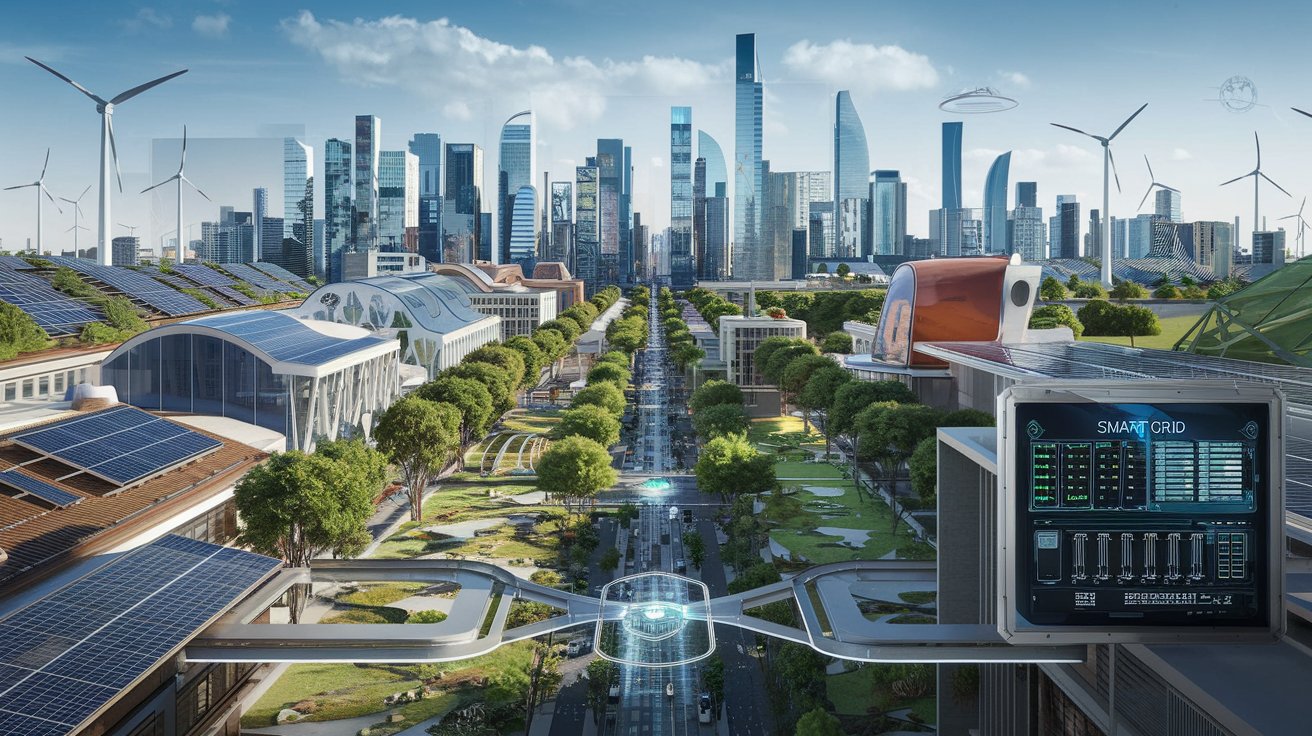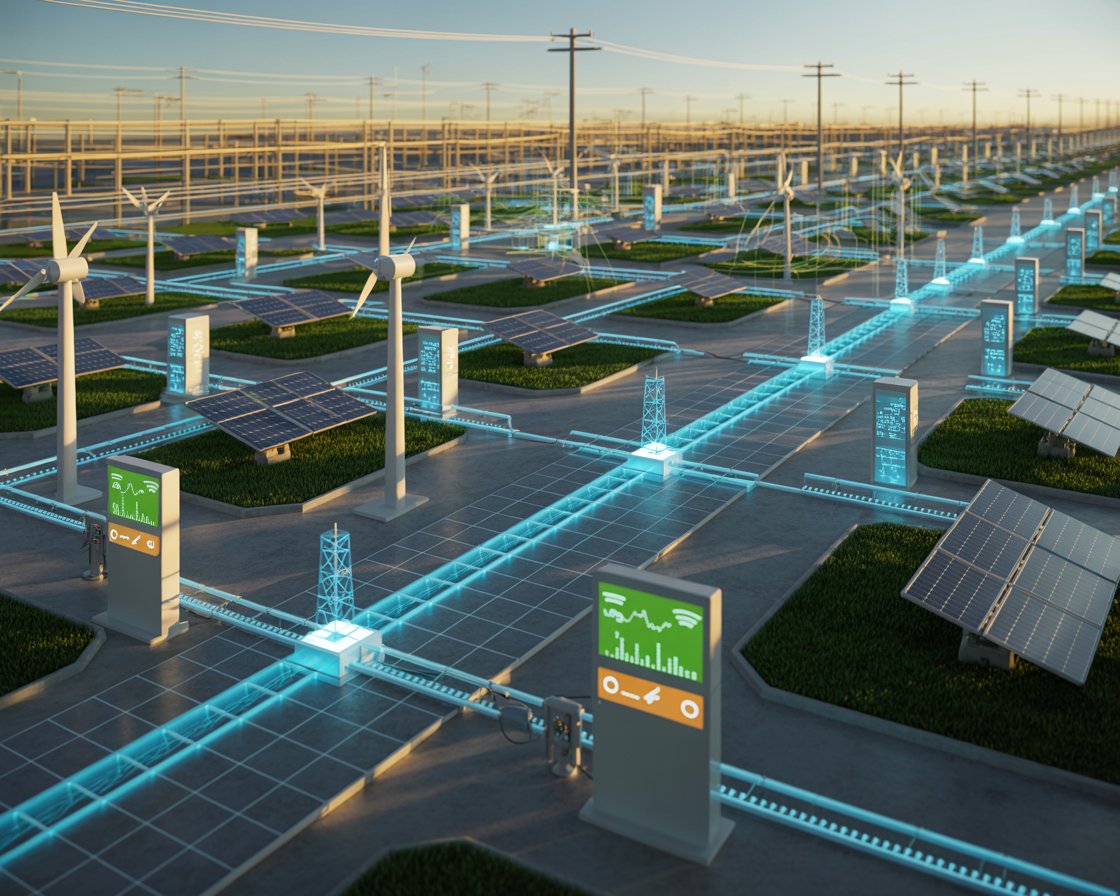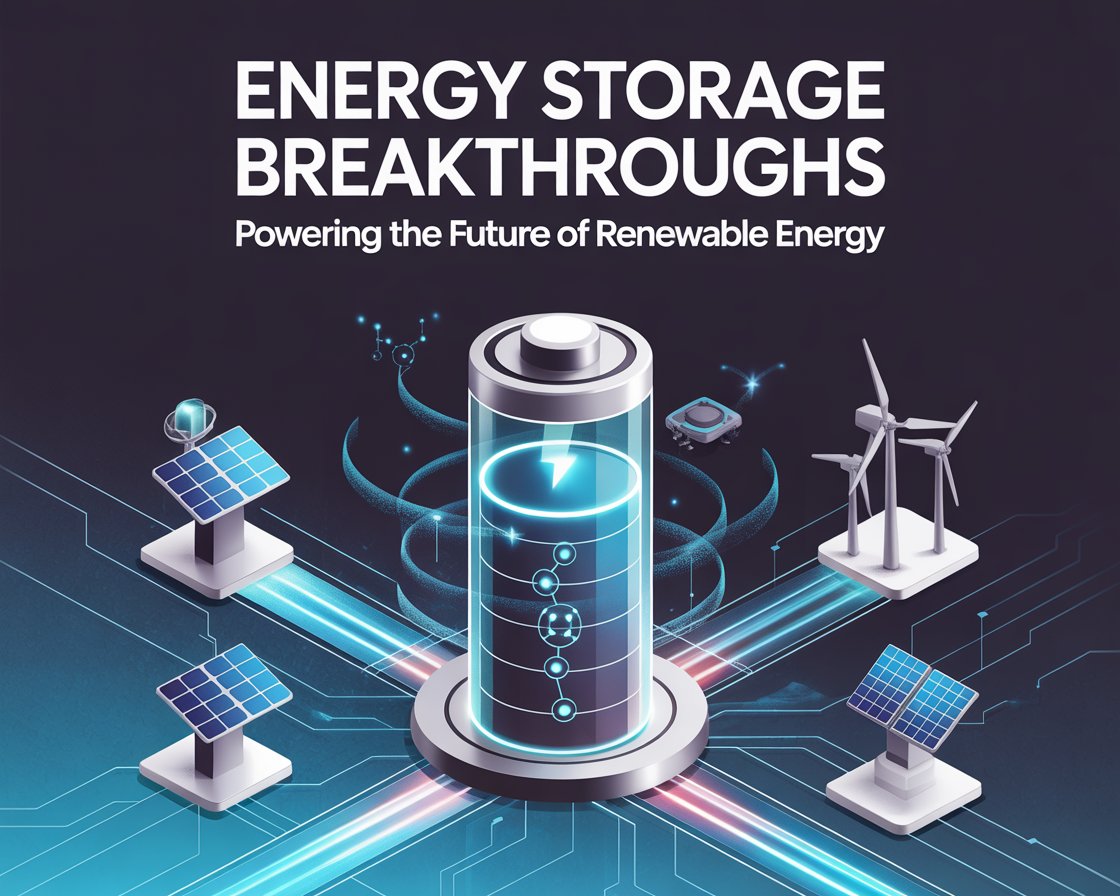Artificial Intelligence in Energy Management refers to the use of AI-driven algorithms and systems to optimize energy production, distribution, and consumption.
These intelligent systems analyze vast datasets in real time, ensuring energy efficiency and sustainability.
By leveraging advanced machine learning techniques, AI can identify patterns in energy use, predict future consumption trends, and recommend adjustments that maximize efficiency.
Artificial Intelligence in Energy Management is revolutionizing the energy industry, driving efficiency, sustainability, and cost savings.
While challenges remain, the potential benefits far outweigh the drawbacks, making AI an indispensable part of our energy future. As the technologies continue to improve, the integration of AI into energy management will not only transform how energy is produced and consumed but also contribute significantly to global sustainability efforts.
Contents
The Importance of AI in Energy Management
The integration of AI in the energy sector not only enhances operational efficiencies but also contributes to significant cost savings. For example, by using AI solutions that optimize energy use during peak hours, businesses can save their energy expenses by as much as 30%.
AI’s capacity to predict energy consumption can also be used to plan energy production and distribution, which can lessen dependency on fossil fuels and encourage the use of renewable energy sources.
Environmental Impact
AI minimizes waste, reduces carbon emissions, and ensures the efficient use of renewable energy sources, making it crucial for combating climate change.
The integration of AI technologies has led to more effective energy management strategies, allowing organizations to monitor their carbon footprint and implement changes that contribute to sustainability.
For example, businesses using AI can optimize their resource consumption, leading to a lower environmental impact.
Additionally, more innovative applications of AI in energy management are emerging, such as AI-driven carbon trading platforms that enable companies to buy and sell carbon credits efficiently. This promotes transparency and incentivizes businesses to reduce their emissions further.
Moreover, the automation of energy management systems can lead to a more balanced energy portfolio, ensuring that supply meets demand without excessive waste. For example, AI systems can automatically adjust energy distribution based on real-time consumption data, allowing for a seamless transition between energy sources.
Operational Efficiency
By automating processes and optimizing energy flows, AI reduces human error and operational costs, making energy systems more reliable. The use of AI in predictive maintenance, for instance, allows organizations to foresee equipment failures before they happen, thus minimizing downtime and maintenance costs.
AI algorithms analyze historical performance data to predict when a machine is likely to fail, enabling timely interventions. By automating processes and optimizing energy flows, AI reduces human error and operational costs, making energy systems more reliable.
Applications of AI in Energy Management
Smart Grids
Smart grids leverage AI to revolutionize energy distribution by integrating real-time data analysis and machine learning. As a result, they enable higher reliability and improved response times during power outages. AI can enhance grid performance through:
- Predictive Maintenance: AI identifies potential failures in the grid before they occur, preventing blackouts.
- Load Balancing: AI ensures a balanced supply and demand of electricity, avoiding overloading.
Renewable Energy Optimization
Renewable energy sources, like solar and wind, benefit immensely from AI, which optimizes their output and integrates them into the energy grid more efficiently:
- Solar Power Forecasting: AI predicts solar energy production based on weather patterns.
- Wind Energy Efficiency: AI adjusts turbine operations for maximum energy generation.
For example, machine learning algorithms can analyze historical data from smart meters to identify trends and anomalies, allowing energy providers to adjust their supply accordingly and enhance customer satisfaction.
Such systems are critical in maintaining grid stability, especially when integrating variable renewable sources like solar and wind that may not produce energy consistently.
Energy Consumption Monitoring
As cyber threats evolve, energy companies must prioritize robust security measures, including advanced encryption and regular audits, to mitigate risks associated with AI integration.
Energy Consumption Monitoring
Additionally, government grants and incentives can help alleviate some of the financial burdens associated with adopting new technologies in energy management.
Monitoring energy use with AI enables smarter decisions about energy procurement and consumption:
- Smart Home Systems: AI-powered devices optimize energy use in households, reducing bills.
- Industrial Energy Management: Factories use AI to monitor and minimize energy waste.
China is also heavily investing in AI for energy management, focusing on smart city projects that utilize AI to optimize energy consumption in urban environments.
Role of Machine Learning in Energy Management
Furthermore, advancements in AI will allow for more personalized energy solutions, where consumers can benefit from tailored energy plans based on their unique consumption habits.
Machine learning, a subset of AI, plays a critical role by analyzing vast amounts of data related to energy consumption, predicting future needs, and continuously improving operational strategies. This capability helps in creating efficient energy schedules and reducing unnecessary energy usage.
This includes innovations in smart home technology, energy-efficient appliances, and the integration of electric vehicles into energy systems, all of which will play a crucial role in shaping a sustainable energy future.
In conclusion, the ongoing advances in AI will continue to unlock new possibilities in energy management, paving the way for innovative solutions that address the challenges of the energy sector.
AI-Powered Energy Storage Systems
AI optimizes energy storage by predicting peak demand periods and ensuring energy is available when needed, enhancing the reliability of renewable energy sources.
These smart systems can automatically charge or discharge based on grid conditions and user requirements.
Data Security
Energy systems using AI require access to sensitive data, raising concerns about cybersecurity and privacy. The protection of this data is paramount to maintaining consumer trust and ensuring compliance with regulations.
Energy systems using AI require access to sensitive data, raising concerns about cybersecurity and privacy.
High Initial Costs
Implementing AI technologies involves substantial investment, which can be a barrier for smaller entities. However, the long-term savings from increased efficiency can offset these initial costs.
Implementing AI technologies involves substantial investment, which can be a barrier for smaller entities.
Global Adoption of AI in Energy Management
Countries worldwide are adopting AI-driven energy solutions to meet climate goals and improve energy efficiency.
Governments are offering incentives to encourage industries to integrate AI technologies. For example, several European nations have launched initiatives aimed at promoting smart grids and AI-based energy management systems across various sectors.
Countries worldwide are adopting AI-driven energy solutions to meet climate goals and improve energy efficiency. Governments are offering incentives to encourage industries to integrate AI technologies.
Industries Benefiting from AI in Energy2
Sectors such as manufacturing, real estate, and transportation are leveraging Artificial Intelligence in Energy Management to reduce costs and enhance sustainability. The manufacturing sector, for instance, has seen significant reductions in energy consumption through AI-driven monitoring and control systems.
The Future of Artificial Intelligence in Energy Management
As AI continues to evolve, its applications in energy management will expand. From fully automated grids to AI-powered energy trading, the future promises smarter and greener energy solutions. For instance, emerging technologies like blockchain combined with AI could revolutionize the way energy is traded, enhancing transparency and efficiency in energy markets.
FAQ
What is Artificial Intelligence in Energy Management?
It refers to the use of AI-driven systems to optimize energy production, distribution, and consumption.
How does AI help in renewable energy management?
AI predicts energy production, optimizes operations, and ensures maximum efficiency for sources like solar and wind power.
What are the challenges of using AI in energy management?
Data security concerns and high implementation costs are significant challenges.
How does AI help in renewable energy management?
How does AI help in renewable energy management?
AI predicts energy production, optimizes operations, and ensures maximum efficiency for sources like solar and wind power.
What are the challenges of using AI in energy management?
Data security concerns and high implementation costs are significant challenges.
Which industries benefit the most from AI in energy management?
Industries like manufacturing, real estate, and transportation see the greatest advantages.
What is the future of AI in energy management?
The future includes fully automated energy grids, AI-driven energy trading, and more efficient renewable energy systems





Leave a Reply